How Is AI Music Made?
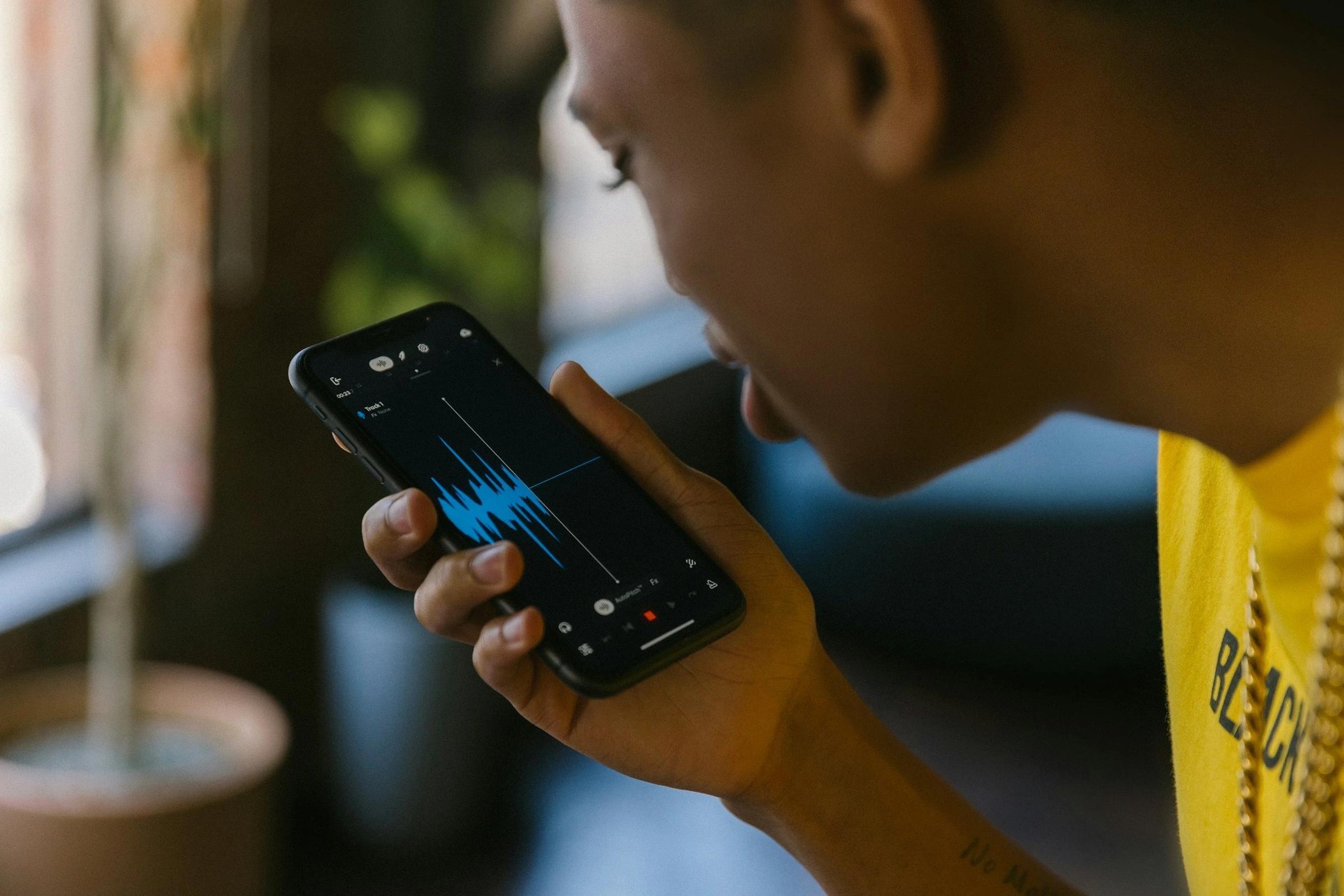


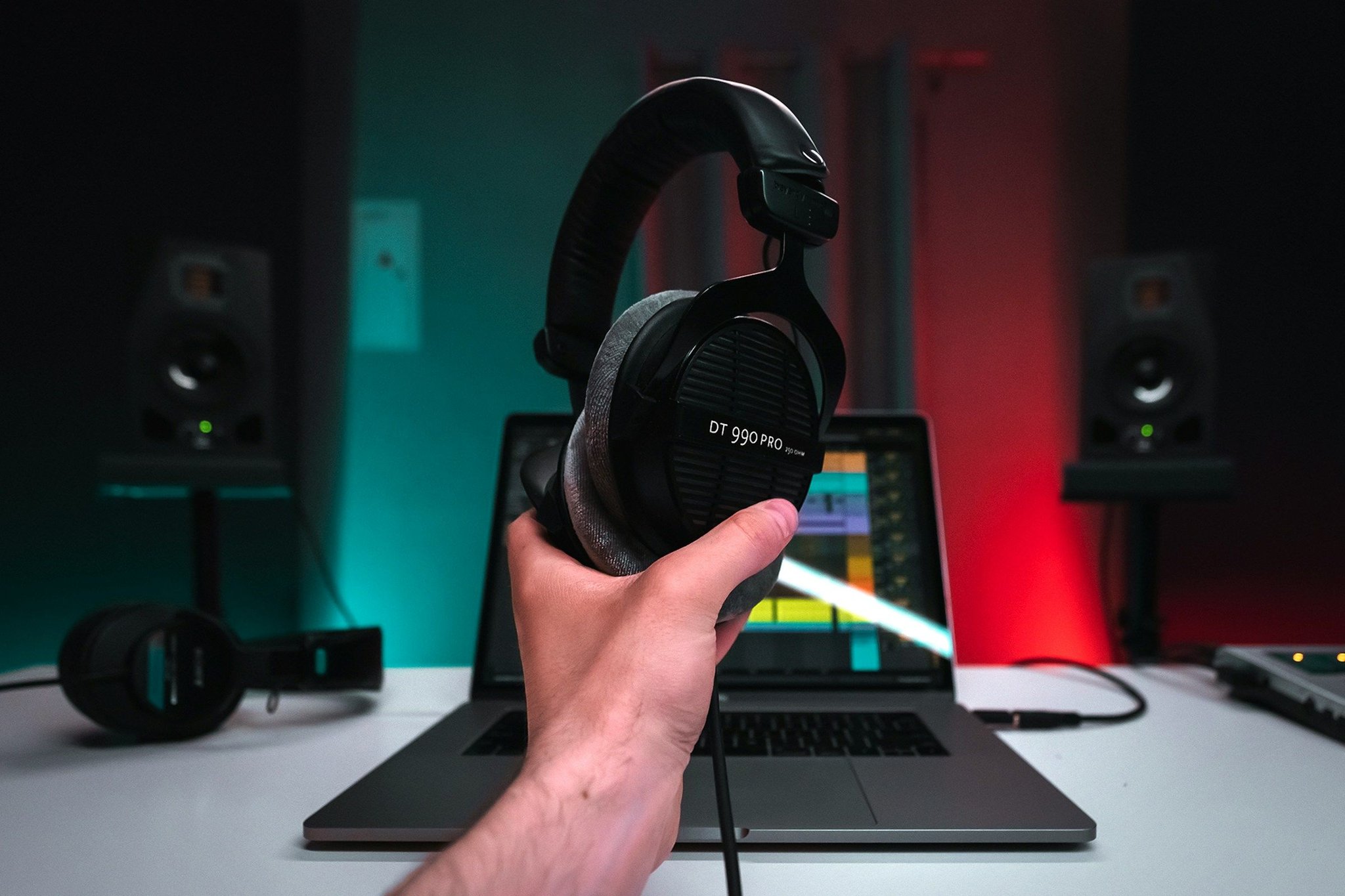
Discover how AI music production is changing how songs are made—faster, smarter, and more creative than ever.
Consider you’re a musician trying to put a fresh spin on a song by your favorite artist. You love merging the original with your sound, but starting from scratch feels daunting. You know there are patterns and melodies to work with, but how do you access them?
Enter AI music production. This emerging technology can analyze the musical elements of the song you want to cover and generate new samples for you to use in your creative process. This guide will explore how to make AI music covers, including how artificial intelligence transforms music creation. SendFame’s AI content maker quickly analyzes existing songs to help aspiring musicians like you create fresh and unique music covers. The tool generates original new samples based on your preferences to help you start your next cover.
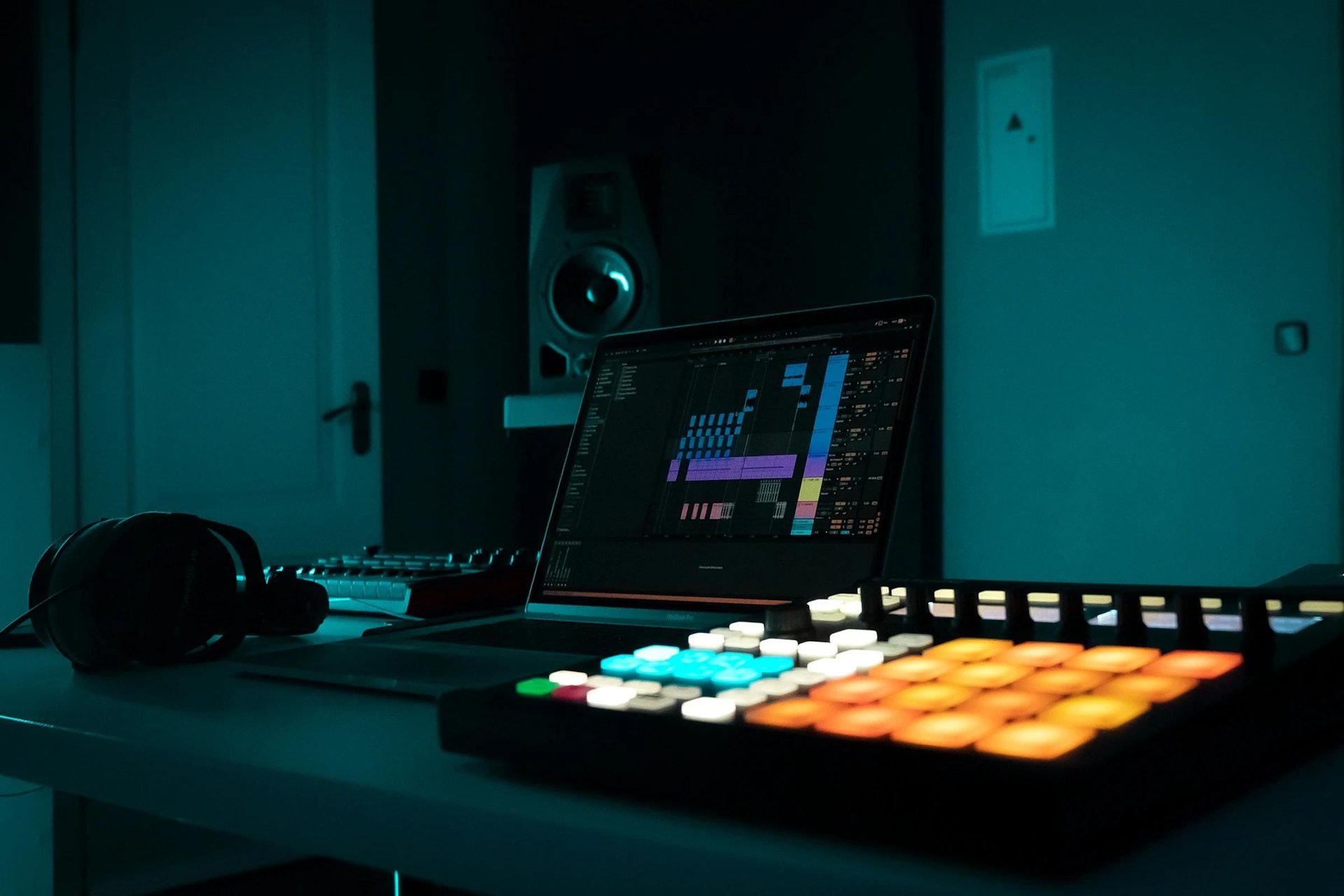
AI music production refers to creating musical content using artificial intelligence technologies that leverage algorithms and neural networks to analyze vast amounts of musical data and generate new music elements such as melodies, beats, harmonies, and even full tracks. AI systems are trained on large datasets of existing music to learn patterns, structures, rhythms, and styles, which they then use to compose original pieces or emulate particular musical genres.
The technology behind AI music production primarily involves machine learning and deep learning techniques. Machine learning enables AI to improve its performance over time by learning from data, while deep learning uses artificial neural networks—complex layers of interconnected nodes modeled after the human brain—to identify intricate patterns in music.
For example, Recurrent Neural Networks (RNNs) and Long Short-Term Memory (LSTM) networks are specialized for processing sequences, making them well-suited for generating coherent musical phrases and more extended compositions. Other models like Generative Adversarial Networks (GANs) and Transformer architectures (e.g., Music Transformer, MuseNet) enhance the ability to create multi-instrumental and stylistically rich music.
AI music production mimics human learning by repeatedly exposing neural networks to musical data. This allows the system to recognize and internalize musical rules and patterns like a human composer learns through practice and experience. This "fast-track" learning enables AI to generate music that can sound innovative and emotionally resonant, sometimes closely resembling human creativity.
AI generates music through pattern recognition by analyzing large music datasets and learning the unique properties of compositions. This process enables AI tools to assist musicians in building base melodies, writing songs, and producing entirely composed tracks ready for release, thus saving time and enhancing creativity without replacing the human artistic element.
In addition to composing melodies and harmonies, AI also employs Natural Language Processing (NLP) to understand and generate lyrics, enabling the creation of complete songs with both instrumental and vocal elements. Audio processing technologies further allow AI to manipulate sound characteristics such as pitch, tempo, and timbre, contributing to the production of polished tracks.
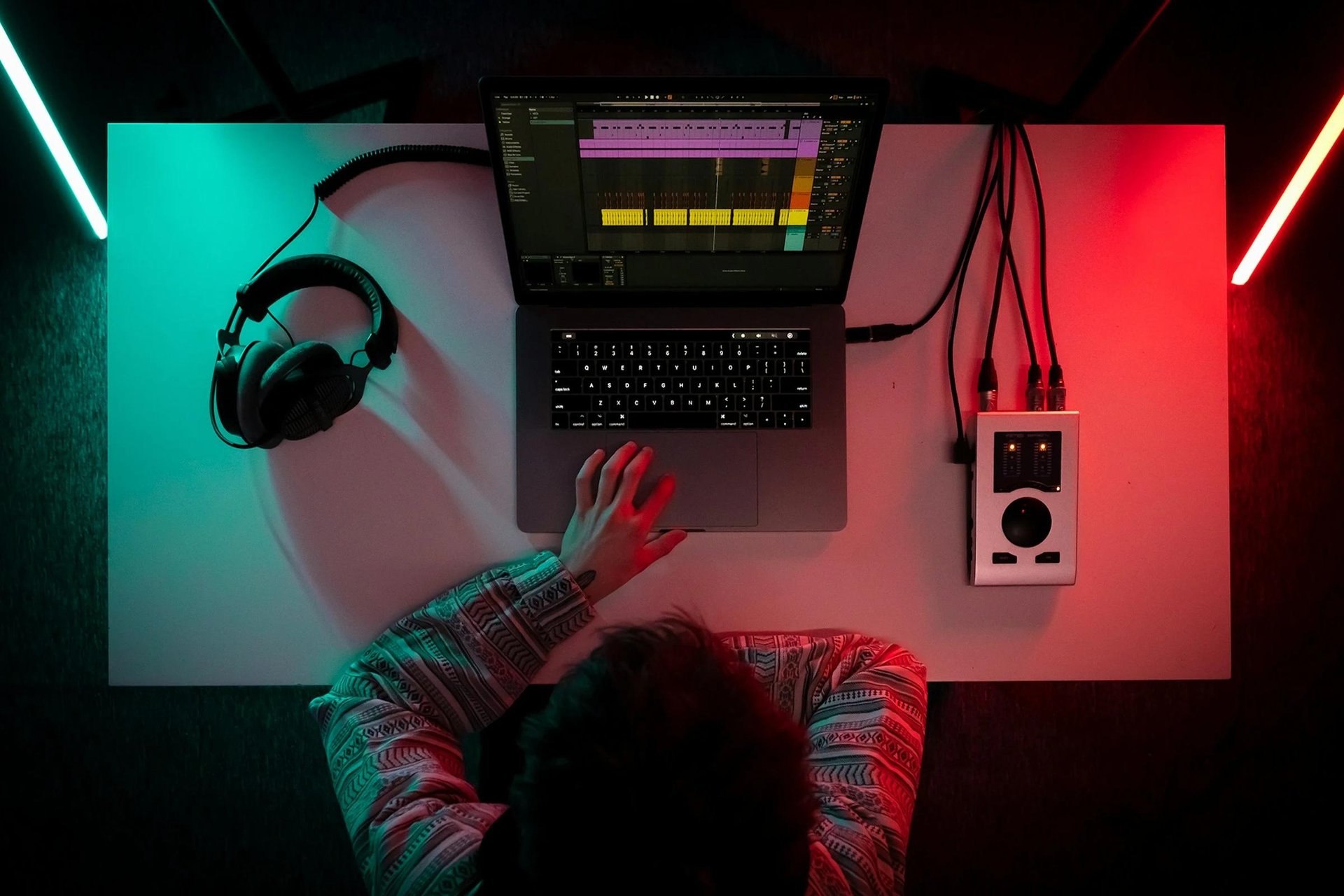
AI technology has transformed the pace at which music is created by automating many time-consuming and repetitive aspects of production, including composing, arranging, and mastering tracks. By processing extensive datasets of musical patterns and structures, AI systems can craft entirely new melodies, harmonies, and rhythmic sequences in a fraction of the time it would take a human. This rapid generation of musical elements allows artists to explore various sounds and genres without getting bogged down by technical details, ultimately accelerating the creative workflow.
AI can also assist artists facing creative stagnation. When musicians encounter blocks or struggle to find fresh ideas, AI can act as a dynamic collaborator, offering innovative suggestions and inspiring new directions. Instead of replacing human creativity, AI complements it by sparking originality and pushing boundaries, helping creators break free from repetitive patterns. This partnership between human intuition and machine-generated inspiration fosters a more fluid and productive creative environment, enabling musicians to evolve their sound and maintain artistic momentum continuously.
AI-driven audio tools have transformed how sound quality is refined by utilizing advanced algorithms to perform tasks such as equalization, compression, and mastering with remarkable precision. These intelligent systems evaluate the nuances of each audio track and automatically adjust parameters to achieve the best possible sonic balance. Traditionally, achieving this level of polish demanded extensive expertise and experience. Still, AI makes it accessible to a broader range of users by delivering professional-grade results regardless of their technical background.
This automation boosts the overall audio quality and significantly streamlines the production process by handling the intricate details of sound enhancement. AI tools free producers from the often tedious and time-consuming aspects of audio engineering. This allows creators to dedicate more energy and attention to their work's creative and expressive elements, fostering a more fluid and inspired workflow. Ultimately, AI’s role in sound optimization bridges the gap between technical skill and artistic vision, allowing musicians to produce high-quality tracks more efficiently.
AI technology has played a pivotal role in leveling the playing field for aspiring musicians by breaking down barriers that once limited access to professional music production. AI-powered tools offer an intuitive and affordable alternative for many amateur artists who lack formal education or cannot afford costly studio gear. These platforms streamline intricate production tasks such as mixing, mastering, and sound design, making it possible for independent creators to craft polished, high-quality tracks from the comfort of their own homes without needing extensive technical knowledge.
This newfound accessibility not only allows individual musicians but also enriches the music industry as a whole by encouraging a wider variety of voices and styles to emerge. By removing traditional obstacles, AI fosters a more inclusive creative environment where diverse talents can flourish. As a result, the music industry becomes more dynamic, reflecting a broader spectrum of cultural influences and artistic perspectives. Ultimately, AI’s democratizing influence is helping to cultivate a richer, more innovative musical ecosystem.
The adoption of AI in music production is expanding remarkably, reshaping how music is created, shared, and monetized. About 60% of musicians utilize AI tools for various tasks such as mastering, composing, and even generating artwork, highlighting the technology’s widespread integration into creative workflows. The AI music market is projected to reach an impressive $6.2 billion by 2025 and is forecasted to surge to $38.7 billion by 2033, reflecting a robust compound annual growth rate (CAGR) of approximately 25.8%.
This rapid expansion is fueled by advances in generative AI, which is expected to be valued at $2.92 billion in 2025 and climb to $18.47 billion by 2034. AI-generated music is also predicted to contribute to a 17.2% increase in overall music industry revenues in 2025, underscoring its significant economic impact.
Beyond production, AI is also transforming music consumption and discovery. Approximately 74% of internet users have used AI-powered platforms to find or share music. In comparison, 82% of listeners report being unable to distinguish between AI-created and human-produced tracks, demonstrating the sophistication and acceptance of AI in the industry.
This widespread adoption is supported by a growing number of AI music platforms, such as SendFame, which are attracting substantial investment. As AI continues to evolve, it is streamlining creative processes for individual musicians and transforming enterprise applications in advertising, gaming, and film, promising sustained growth and innovation in the music production landscape for years to come.
AI technology is a powerful catalyst for boosting creativity and improving workflow efficiency in music production. AI allows musicians and producers to focus more deeply on their work's artistic and conceptual aspects by taking over repetitive and time-intensive tasks such as editing, mixing, and mastering.
This shift from technical execution to creative exploration helps artists experiment with new sounds and ideas more freely, ultimately leading to richer and more innovative musical compositions. Platforms that integrate AI tools are reported to increase productivity by reducing the time spent on routine processes, enabling creators to produce higher-quality output in less time.
Forbes data emphasizes AI’s role in transforming music creation by assisting with songwriting, arrangement, and production, thus enhancing artistic productivity. These benefits foster a more fluid and dynamic workflow, where inspiration and efficiency go hand in hand.
As a result, musicians can maintain momentum without getting bogged down by technical hurdles, leading to a more consistent and prolific creative output. With AI streamlining the backend processes, artists can push boundaries and explore new genres, styles, and arrangements, making the music production journey more enjoyable and productive.
Platforms like SendFame play a crucial role in unlocking the full potential of AI in music production by offering integrated, user-friendly tools that streamline creation, distribution, and promotion. By equipping advanced AI algorithms, SendFame enables artists to generate complete songs from lyrics and melodies to vocals and music videos within minutes.
This significantly reduces the time and technical expertise traditionally required. This accessibility boosts creative freedom and helps musicians reach broader audiences by producing engaging, shareable content such as personalized AI celebrity video messages and custom music clips.
Release your creativity with SendFame! Create stunning AI celebrity videos, music tracks, and images in seconds that will wow your audience. Generate hyper-realistic videos of your favorite celebrities delivering personalized messages, craft original songs with professional-quality vocals, and transform static images into dynamic videos—all with just a few clicks. No technical skills required—just your imagination! Join 130,000+ users already creating viral-worthy content. Try SendFame today and turn your creative ideas into reality instantly.
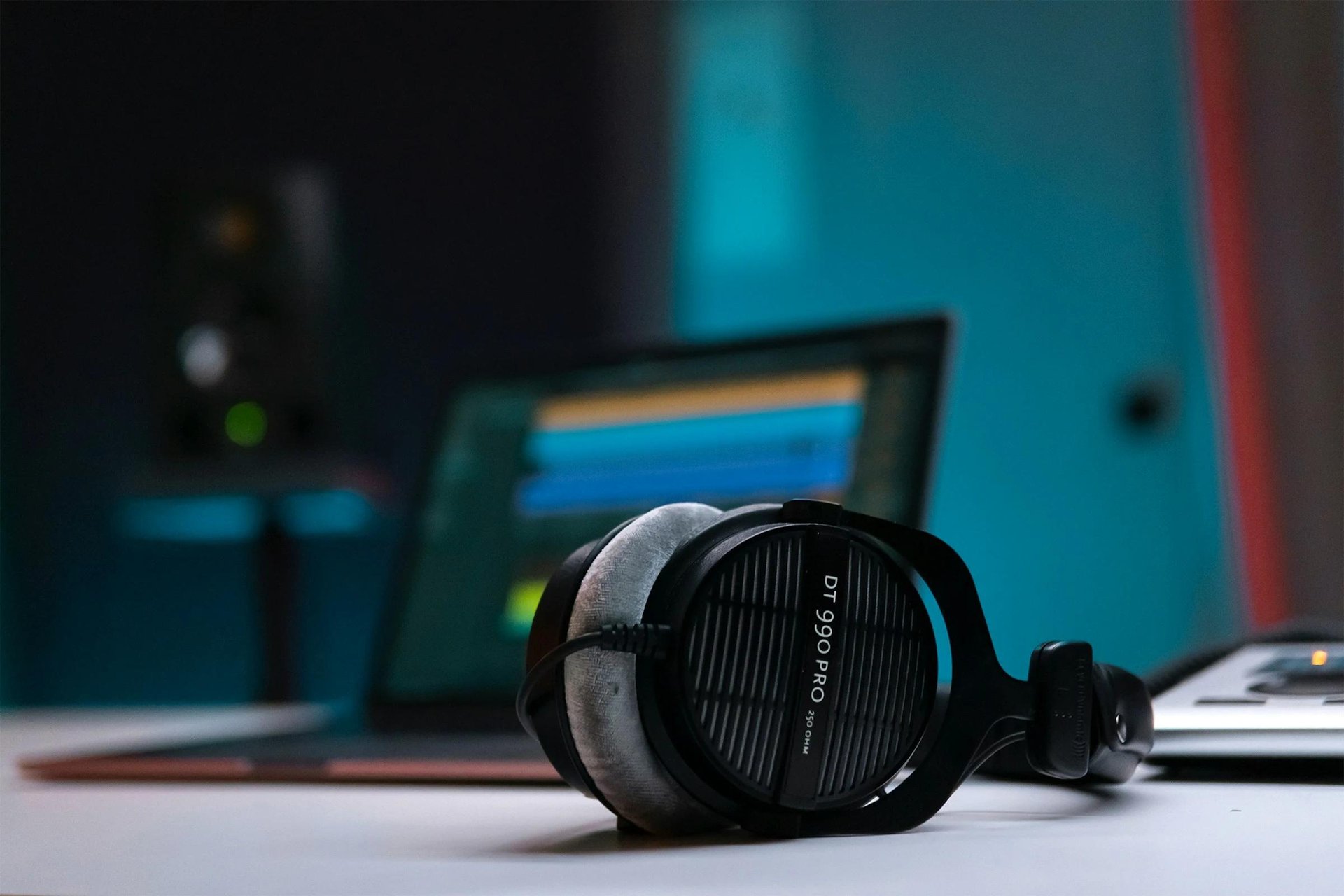
Artificial intelligence is already transforming music production as we know it. By 2025, AI will likely become a creative partner for musicians, producers, and listeners, driving significant growth and innovation in the industry. So, what will that look like? To answer that, we must first understand where AI music technology is today.
AI music technology has evolved beyond basic automation and can become a sophisticated collaborator for artists and producers. Modern AI tools understand and adapt to the unique preferences of each user, from subtle tonal nuances to favored software plugins, allowing creators to preserve their distinctive sound while equipping the speed and precision of AI.
These intelligent systems can automatically mix tracks, propose inventive modifications aligned with an artist’s style, and streamline the production workflow by generating original compositions, harmonies, and arrangements. Additionally, AI-driven mixing and mastering platforms now offer instantaneous, genre-specific recommendations that accelerate post-production timelines and ensure the artist’s creative vision remains intact.
AI’s music technology capabilities are impressive. Studies reveal that 82% of listeners cannot differentiate between human tracks and AI-generated or enhanced tracks. This convergence of technology and artistry signals a profound shift in how music is crafted and consumed worldwide.
One of the most groundbreaking developments in the music industry is the rise of AI-powered personalized music experiences. Advanced AI algorithms can craft compositions that adapt smoothly to an individual’s mood, preferred genre, or specific project needs. This delivers soundtracks that shift and evolve in real time. Such customization transforms passive listening into an engaging, dynamic experience, where the music responds to the listener’s environment or emotional state.
Beyond personalization, AI fosters interactive music creation, enabling artists and producers to collaborate with intelligent systems that suggest innovative sounds, rhythms, and textures. This synergy between human creativity and machine intelligence opens up fresh possibilities for experimentation, pushing the boundaries of what music can be and how it is produced.
Streaming services also capitalize on AI’s capabilities by utilizing sophisticated algorithms to curate highly personalized playlists and facilitate music discovery. With approximately 74% of internet users engaging with AI-based music recommendation tools, this trend alters how audiences find and connect with music. The result is a more immersive, tailored listening journey that strengthens the bond between artists and their fans while expanding the creative potential of the music industry as a whole.
The rapid advancement and smooth integration of AI tools into everyday music production have significantly changed the creative process for artists and producers alike. Platforms now offer AI-assisted composition capabilities, while mastering services like LANDR provide automated, high-quality finishing touches, making sophisticated production techniques more accessible.
These AI-driven tools leverage neural networks trained on extensive musical data, enabling them to generate fresh sounds and original compositions that reflect complex musical patterns and styles. By accelerating tasks that traditionally required significant time and expertise, these technologies allow musicians to explore new creative directions without being bogged down by technical constraints.
As AI continues to evolve, its function in music creation is shifting from an auxiliary aid to an active, collaborative partner. This transition allows artists to dedicate more energy to their work's expressive and emotive aspects. At the same time, AI systems efficiently manage repetitive, technical, or time-consuming elements such as mixing, mastering, or sound design.
The result is a harmonious blend of human creativity and machine accuracy, fostering a new era of music production where innovation thrives through this symbiotic relationship. This paradigm shift enhances productivity and expands the artistic possibilities available to musicians, ultimately enriching the diversity and quality of music produced worldwide.
Academic research into AI’s expanding role in the music industry sheds light on a complex landscape filled with promising opportunities and significant challenges. Scholars emphasize that AI has the potential to democratize music creation by making sophisticated production tools accessible to a broader range of artists, regardless of their technical background or resources.
This accessibility can foster greater diversity and innovation within the industry, enabling emerging musicians to experiment and produce high-quality work that was once out of reach. At the same time, researchers raise important ethical questions regarding the use of AI-generated content, particularly around issues of authorship, originality, and the fair attribution of creative contributions. The blurring lines between human and machine-generated music call for new frameworks to address intellectual property rights and ensure that creators receive proper recognition and compensation.
While predicting the precise trajectory of AI’s influence on music remains challenging due to the rapid pace of technological advancement, academic consensus agrees that AI will continue to be a pivotal driver of change within the industry. The ongoing transition towards streaming and subscription-based consumption models aligns closely with AI’s capabilities, as personalized recommendations and algorithmically curated playlists become standard features for listeners worldwide.
This synergy between AI and evolving music distribution methods reshapes how audiences discover and engage with music, making the listening experience more tailored and interactive. As AI technology matures, it deepens its integration into every facet of the music ecosystem, from creation and production to distribution and consumption, marking a fundamental shift in the future of music.
The fusion of AI technology with music NFTs (non-fungible tokens) transforms how artists monetize their creations, providing new digital avenues for ownership and revenue generation. This integration allows musicians to offer unique, AI-enhanced audio experiences that can be bought, sold, and traded on blockchain platforms, adding a layer of exclusivity and interactivity for fans.
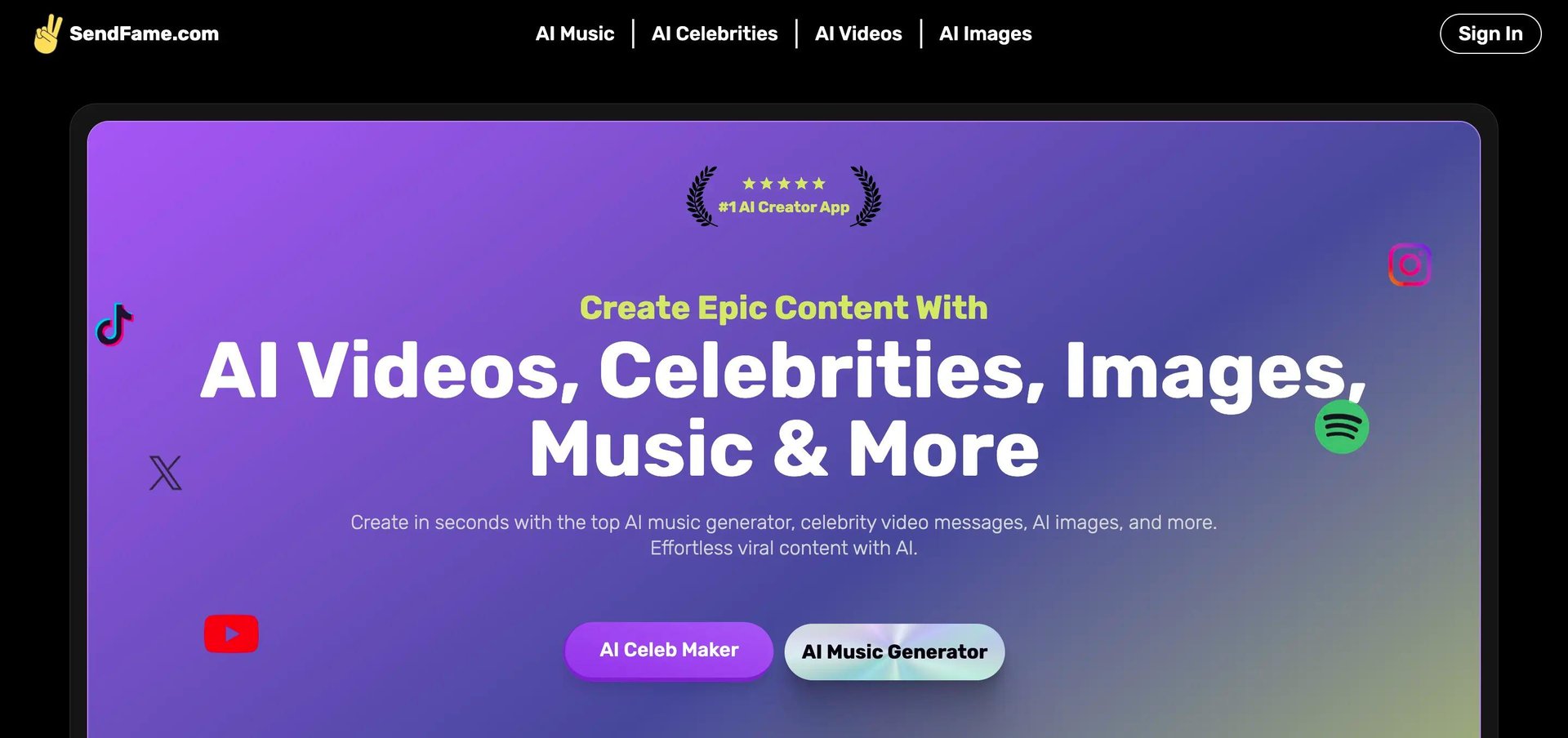
Creating an account on SendFame’s website is the first step toward exploring the site’s AI music production features. Once you’re signed up, you can get familiar with the interface. SendFame features a user-friendly AI Music Generator Studio that lets you create custom songs by inputting themes, moods, or lyrics. You can also input your lyrics or any textual content using the text-to-song feature. SendFame’s AI will convert that text into an entirely produced song with vocals, beats, and melodies in under a minute.
SendFame allows you to create custom music by entering simple descriptions or prompts about the song’s mood, genre, or theme. The platform’s AI then analyzes your input to compose music that aligns with your creative vision, including lyrics, voice, beat, and even album cover art. You can also upload your track or use the AI-generated song to produce captivating music videos with visuals that match the rhythm and mood.
Incorporating SendFame’s AI music production into your existing workflow is easy. You can use AI for inspiration and drafts, enabling you to quickly generate song ideas, melodies, or lyrics, which you can refine and customize further. You can also export AI-generated tracks to your DAW (Digital Audio Workstation) for mixing, mastering, and additional production. SendFame supports collaborative content creation, allowing producers and musicians to share AI-generated drafts and ideas easily.
SendFame features several unique tools to help you enhance your creative output. You can differentiate your music promotion by creating personalized celebrity-style video messages featuring AI-generated voices and famous personalities' appearances. This adds a unique marketing angle to your promotion.
There are also AI rap and genre-specific generators to experiment with that create AI-generated rap songs or country music tailored to your themes. You can instantly enhance your music branding by creating AI-designed album covers and custom stickers. Finally, benefit from SendFame’s fast content generation, ideal for social media campaigns and time-sensitive releases.
To effectively use SendFame AI music production, start small. Begin with simple prompts and gradually explore more complex song structures. Also, experiment with different genres. Use AI to explore genres outside your usual style to spark new creative directions.
Treat AI-generated music as a foundation; add your personal touch through editing and production. Finally, use AI celebrity content responsibly, respecting copyright and ethical considerations, as SendFame is intended for parody and personal use only.
Stay updated on SendFame’s AI capabilities as they continually improve. Keep an eye on new features and updates for your music production toolkit. Also, consider combining SendFame with other AI tools to enhance your music production skills. For example, for mastering and mixing, integrate other AI tools like LANDR or iZotope plugins to polish your tracks further. Finally, engage with other SendFame users and AI music producers on forums and social media to share tips and inspiration.
When you think of making a music cover with artificial intelligence, you probably envision a complex process that requires technical know-how. But that couldn't be further from the truth! At SendFame, we make it easy for you to create an AI music cover of your favorite celebrity in just a few clicks.
Our innovative platform uses cutting-edge AI technology to generate celebrity music covers that will wow your audience. With SendFame, you can release your creativity and turn your wildest ideas into a stunning reality—no technical skills required! Try SendFame today to see how simple it is to make music covers with AI.
Getting started with your AI music cover is easy. First, pick a celebrity. With SendFame, you can choose from hundreds of your favorite musical artists, actors, and other public figures. Next, select a music track. You can choose from the songs available in the SendFame library or upload your own.
Finally, personalize your cover by adding a text prompt to help direct the AI to create your envisioned video. Once you generate your celebrity cover, you can create as many variations as you want until you achieve the perfect result.
Create Epic
SendFame